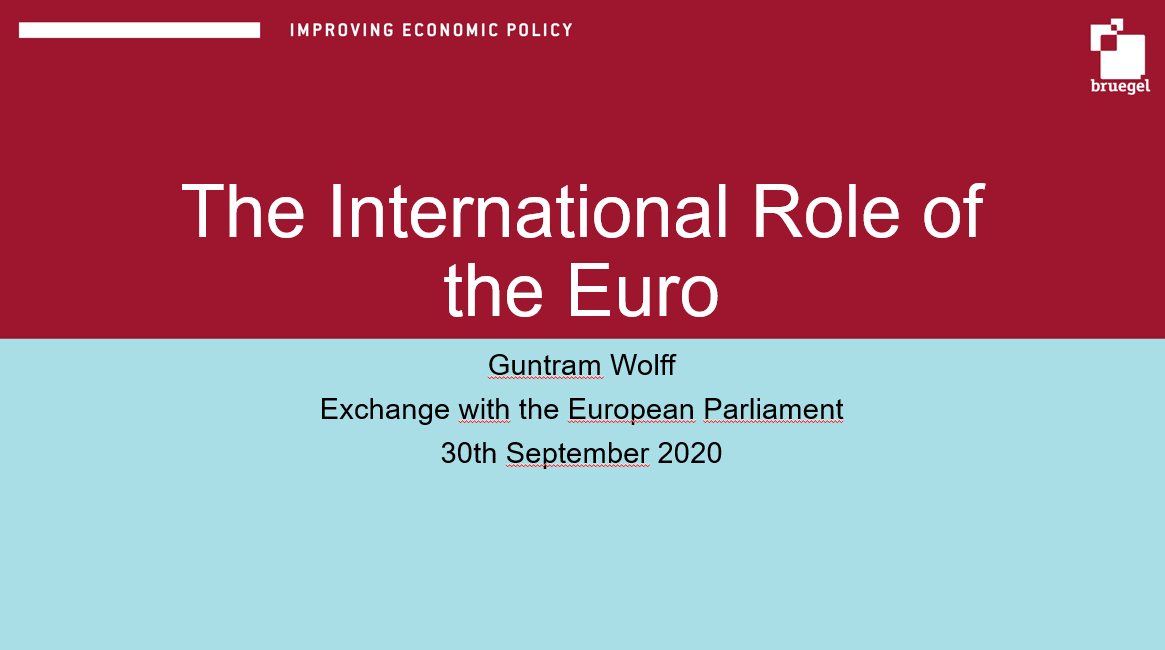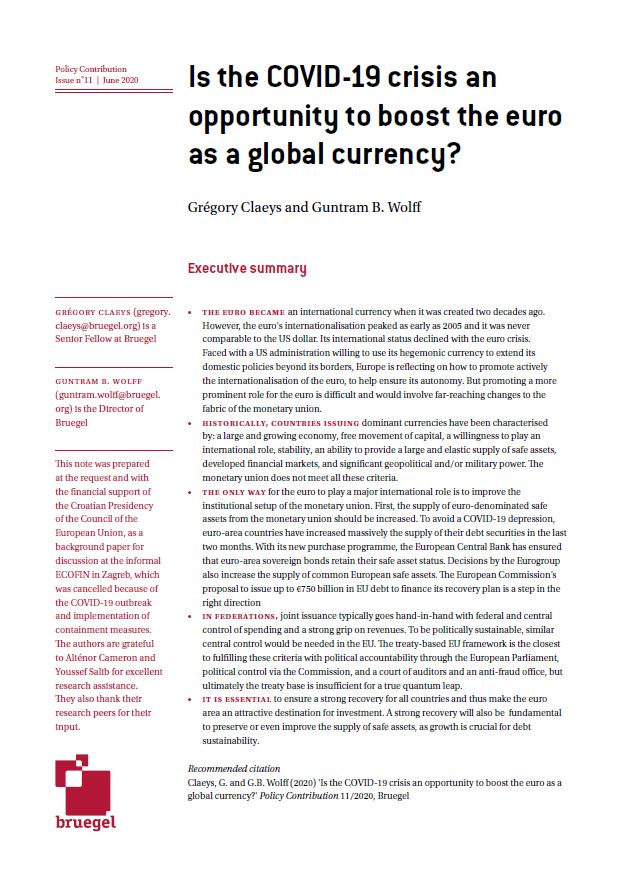Blog Post
Decisive action needed to save Greece – and the euro
One way or the other, the approach of European policymakers to the Greek crisis is going to have to change radically over the next few weeks. A series of EU-IMF loans-for-reforms programmes for Greece has proven to be both economically and politically unviable. The Greek economy shrank by more than 6 per cent in the […]
One way or the other, the approach of European policymakers to the Greek crisis is going to have to change radically over the next few weeks. A series of EU-IMF loans-for-reforms programmes for Greece has proven to be both economically and politically unviable.
The Greek economy shrank by more than 6 per cent in the first quarter of 2012 compared with the same period last year. A drop in economic activity of this scale can only be partly explained by the depressing effects of cuts to government spending and tax hikes.
This means that even if Europe were to agree to Greek requests to renegotiate the bailout programme and give the new government more time and more money to meet its debt reduction targets after elections in June, the Greek economy would not return to growth. Greece needs a game changer, not tinkering around the edges.
The most immediate threat to the current approach is the outflow of funds from Greek banks. Media reports suggest that Greek depositors are withdrawing €800 million a day from the banks in fear of a Greek exit from the euro.
Reports also suggest that banks are funding these outflows by borrowing on an emergency basis from the Bank of Greece, since the European Central Bank has reportedly stopped lending to some Greek banks. The problem is that Greek banks are technically insolvent as a result of losses they suffered on their holdings of restructured Greek government bonds.
Because of the heightened political uncertainly, the promised disbursement of EU funds to recapitalise the banks has been delayed. Things can’t go on like this for much longer. Nervousness about the safety of bank deposits can easily turn into outright panic.
One way to go might be for Europe to introduce something like a Marshall Plan for Greece. Europe would help Greece with large-scale financial aid to reduce the country’s unsustainable external debts, recapitalise Greek banks, and pay for a demand-led stimulus programme. This aid would take the form of transfers, not loans.
Alternatively, the EU and other international creditors may decide to pull the plug on funding, forcing Greece to exit the euro and default on its debts.
The damage to the Greek economy of a departure from the euro would be enormous. In the run-up to an official announcement, the banks would be drained of funding and would stop making new loans. Households and businesses would reduce spending to hold on to their euros, further depressing the economy. The government would introduce a new drachma, redenominate bank deposits and other debts issued under Greek law into the new currency, and probably impose capital controls and bank holidays to prevent capital flight.
The new drachma would presumably plunge in value on foreign exchange markets. This depreciation would boost Greek exports, including tourism, although the benefits would take some time to materialise. The price of imported goods, commodities (such as oil) and services would soar. Debts issued under international law would remain as euro claims, pushing many businesses with such debts into insolvency. These debts would have to be restructured. Against this backdrop, the government would find it difficult to maintain social order.
What would be the consequences for Ireland and the rest of the euro area? The effects on the Irish economy of reduced trade with Greece would be modest. Ireland’s exports to Greece amount to about €300 million annually, equivalent to only 0.3 per cent of total exports.
Similarly, Ireland’s commercial banks and pension funds have little direct exposure to Greece, with negligible holdings of Greek assets.
The real worry is that a Greek exit from the euro could cause significant contagion through the financial system, especially through the banking sector. We got a flavour of this contagion this week, with yields on long-term Irish government bonds jumping to nearly 7.5 per cent, up from less than 7 per cent last week.
Ireland was not the only country in the firing line. Borrowing costs for Spain reached a five-month high of 6.5 per cent, while Italy’s 10-year bond yield rose to 6 per cent, marking the highest level since late January. Meanwhile, European stock prices have slumped to their lowest level this year.
A Greek exit would fundamentally change the rules of the game. The Asian financial crisis in the late 1990s convinced economists and policymakers of the dangers of so-called “fixed but adjustable” exchange rate regimes. The consensus since then has been that a country should either have its own currency, the value of which should be determined by market forces, or should give up its currency and join a monetary union like the euro. Membership of a currency union was perceived as irrevocable. As an economist colleague of mine once put it, the euro area is like the Hotel California – you can check out anytime you like but you can never leave.
But if Greece leaves, a threshold will have been crossed. To the markets, the euro area may look more like a system of fixed but adjustable exchange rates. This would be less of a worry if Greece were viewed as uniquely unsuitable for membership of a currency union. And, certainly, Greece is by far the most troubled economy in the euro area. It is a deeply uncompetitive economy, lacking in a proper system of public administration.
But there are also large imbalances in other peripheral euro economies. Investors’ doubts about the capacity of some member states to adjust their economies and return to sustainable growth within the constraints of the single currency will likely remain.
Risks that other troubled economies might at some stage follow Greece out of the euro would put upward pressure on the cost of market funding for governments and banks in peripheral economies. Financial conditions would remain stressed, which in turn would feed back into the real economy and continue to depress economic activity. Depositors in some countries may become nervous, especially if pictures of Greek citizens queuing outside banks are beamed into their living rooms.
The risks of financial contagion across the euro area in a Greek-exit scenario underscore the importance of decisive action by Europe to construct robust firewalls. The building blocks of such firewalls are in place, but European leaders will need to be bolder.
The European Stability Mechanism could become a vehicle to inject capital directly into banks in peripheral economies, thereby reducing the potential for contagion through the banking system. The European Central Bank could ramp up its purchases of peripheral sovereign bonds. The euro area, with 16 remaining members, would have to move promptly towards closer fiscal integration, with euro bonds and probably transfers between member states.
To be acceptable to Germany and other creditor countries, such moves would probably require an accompanying leap towards some form of political union.
We got a timely reminder this week of how valuable an outsider’s perspective can sometimes be when Canadian finance minister Jim Flaherty urged European leaders to do the right thing and “use some of their taxpayers’ money to bail out some of the weaker members of the euro zone – or start moving away from the euro zone and just say this was an experiment that has not worked”. For the euro, we have arrived at the moment of truth.
*This article was previously published in The Irish Times.
Republishing and referencing
Bruegel considers itself a public good and takes no institutional standpoint. Anyone is free to republish and/or quote this post without prior consent. Please provide a full reference, clearly stating Bruegel and the relevant author as the source, and include a prominent hyperlink to the original post.











